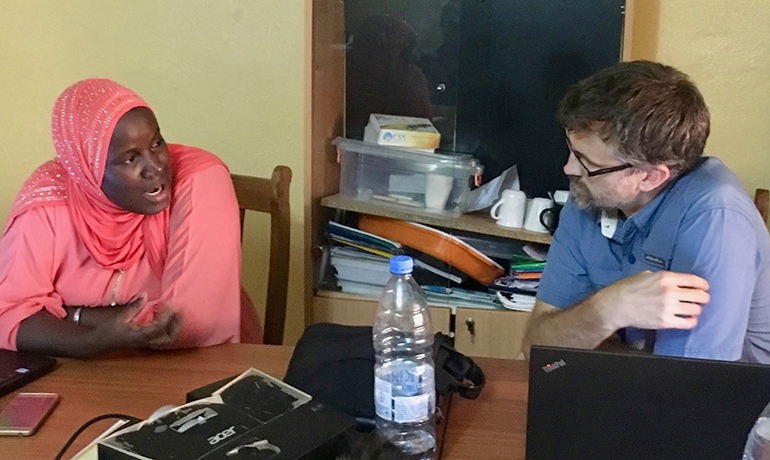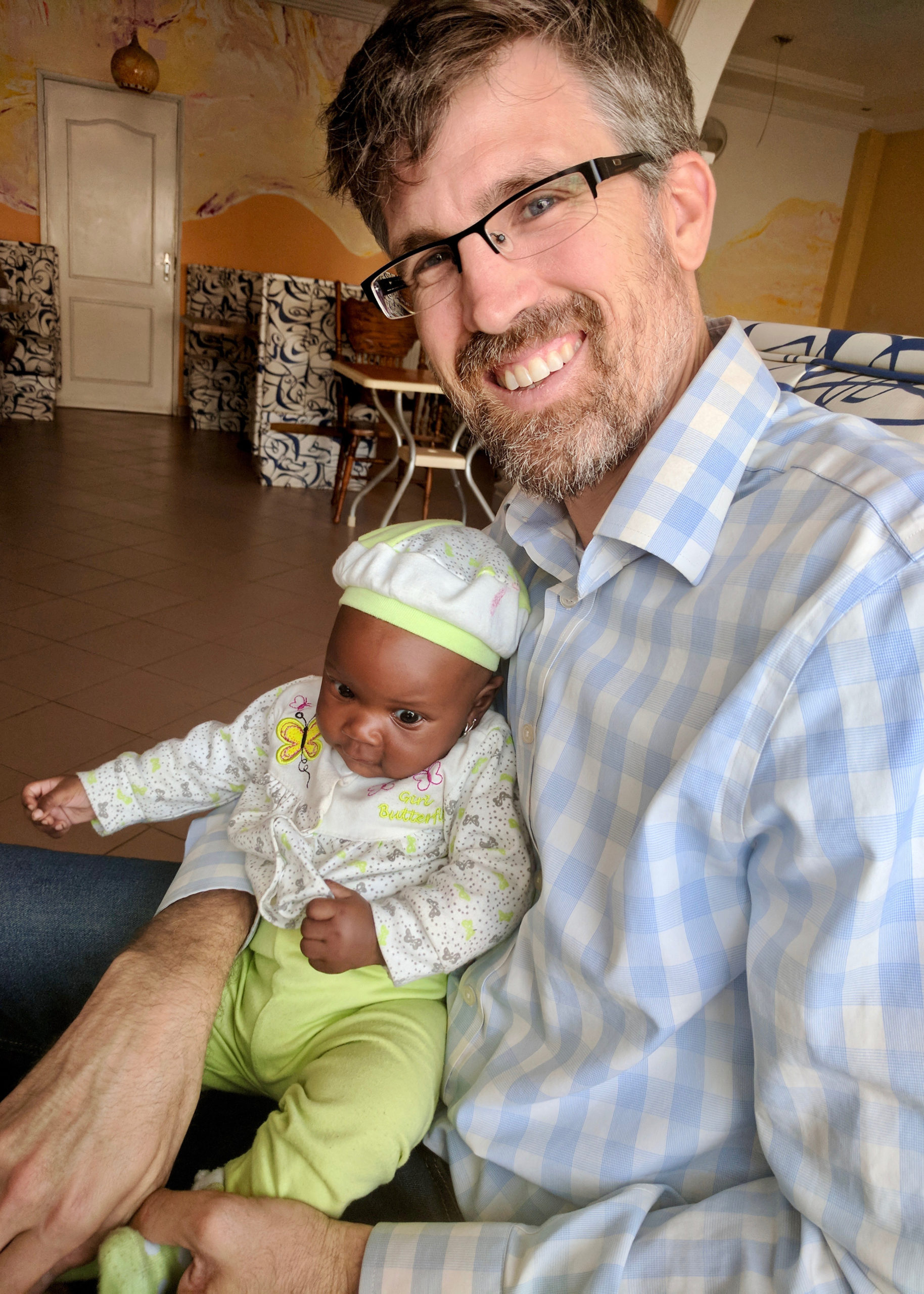
Cervical cancer is the leading cancer killer in Senegal. Andrew Dykens is working to change that.
Dykens, MD, MPH, University of Illinois Cancer Center member and associate professor of family medicine at the University of Illinois College of Medicine, has worked closely with Senegal’s regional health ministry to implement a visual inspection cervical cancer screening program that he believes will help women in the West African nation discover the potentially deadly disease in its infancy.
 “There are more than half a million new cases of cervical cancer each year, with nearly 90 percent of these cases in less developed nations such as Senegal,” said Dykens, who first began working in Africa as a U.S. Peace Corps volunteer in 1997 in Mauritania, a country just north of Senegal. “Most of the women remain undiagnosed and have limited or no access to treatment. Ten of the 13 rural regions in Senegal have no access to cervical cancer screening services, even though screening by visual inspection of the cervix with acetic acid is highly effective and affordable.
“There are more than half a million new cases of cervical cancer each year, with nearly 90 percent of these cases in less developed nations such as Senegal,” said Dykens, who first began working in Africa as a U.S. Peace Corps volunteer in 1997 in Mauritania, a country just north of Senegal. “Most of the women remain undiagnosed and have limited or no access to treatment. Ten of the 13 rural regions in Senegal have no access to cervical cancer screening services, even though screening by visual inspection of the cervix with acetic acid is highly effective and affordable.
“We want to learn why women aren’t being screened, whether it’s understanding how to access the service, the cost, discrimination against women, or overcoming the stigma of cancer. Language could be another barrier. The main language is French, but there are multiple local languages. All of these factors create challenges in educating the public.”
Senegal, a nation of nearly 15.4 million people, ranks 15th in the world in incidence of cervical cancer. The number of women being screened for the potentially deadly disease is low – 6.9 percent of women ages 18 to 69 years old, with frequency peaking between the ages of 45 and 54 – especially in rural areas and among older age groups (only 1.9 percent of women above the age of 40), Dykens said.
Dykens began implementing the screening program in 2010 in a partnership between the Kedougou Regional health system, the Institute of Health and Development, UIC and the Peace Corps. By 2014, the screening service was available to more than 18,300 women throughout the region. Kedougou is the least developed of Senegal’s 14 regions, located in the southeastern part of the country bordering Mali and Guinea.
Of the women who were eligible for the cervical cancer screening, only 509 (roughly 5 percent) that were targeted through a mass campaign took advantage of it in 2014, Dykens said. Only 10 percent of the women were 45 years or older.
In 2016, Dykens was selected to receive a five-year Fogarty International Research Scientist Development Award from the National Institutes of Health to expand his work. Through his past efforts with the Peace Corps, Dykens knew a strength of the organization is working closely with leaders in local communities. By partnering with them he could enhance his knowledge on how to successfully integrate his program into the country. However, the Peace Corps does not “routinely conduct primary healthcare services implementation research, but universities in the United States and other countries abroad do.
“I wanted to bring the two together so that they could benefit from each other,” Dykens said. “In my experience, the most successful research and implementation projects in rural areas are those that work with deeply integrated partners that have a strong understanding of the local environment.”
A primary focus of the educational program, Dykens said, is how to make it sustainable, to adapt and strengthen systems to meet the needs of communities now and in the future. Dykens has discovered that partnering with “care groups” is important to achieve this long-term goal.
“Women in ‘care groups’ are provided with educational materials and are trained as trainers,” he said. “Once their training is complete they return to their homes and share information in a standardized way, ensuring their community is as informed about various health services.
“Care groups have been operating in Senegal since the early 1980s, and they work closely with the Peace Corps. Since the Peace Corps understands how care groups operate and how they work with women at the community level, we’re working closely with them to develop that intervention piece.”
Dykens’ educational program is working, as the number of women screened for cervical cancer has steadily risen; it’s now at 20 percent. The goal, he said, is 70 percent.
“The lessons we learn through our screening program will be transferrable in providing access to and empowering the nearly 1 million screening eligible (ages 30 to 59) women throughout rural Senegal,” he said.
